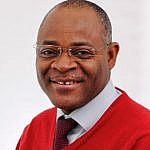(Version française ci-dessous)
During the regional meeting organized by the Panos Institute West Africa (PIWA), on “Legal and policy frameworks for the information society in West Africa”, in Saly, Senegal, with the support of the Open Society Initiative for West Africa (OSIWA), a one day consultative forum was held to discuss West African participation in the Internet governance Forum (IGF).
The aim was to inform stakeholders on the IGF processes, its implementation, and the current on-going review; and to further discuss its interests and impacts for West Africa on the road to the fourth annual meeting of the Forum in Egypt.
The forum highlighted the following priorities and recommendations for consideration during IG discussions and deliberations:
- Awareness: Further develop awareness and capacity building on IG and its processes;
- Access to infrastructure: With regards to technical infrastructure, regional backbone and internet exchange points (IXPs), government should ensure the creation of policies to support regional infrastructure development with support for cross border connectivity, right of passage for cable infrastructure and open access to landing stations in West African countries;
- Open Standards and Interoperability: Understanding the role of government as a producer, purchaser and regulator of information, government should ensure its services are available to all by developing interoperability standards that allow universal access;
- Internet Security, Safety and Trust: Building trust and confidence in online services to be able to allow wider usage of eGovernance facilities, eCommerce and implementation of other online activities;
- Development of Multilingual and Local Content: Providing useful and relevant content in local and national languages, meeting the needs of West Africans, as well as promoting internationalized domain names;
- National and Regional Top Level Domain Names: Establishment of, and the strengthening of a West African and continental identity through names such as .africa and a regional West African domain to ensure localisation of cost and traffic within the continent;
- Transparency: Promoting transparency in governance at national and regional levels in the information society;
- Collaborative Approach: Strengthening of multistakeholder approaches in internet governance, policy and decision making processes, through face to face meetings and remote participation;
- Digital literary and technologies: Bridging the literacy gap and develop better access to ICTs for all citizens and communities;
- Role of Regional Governance and Economic Commissions: Encouraging regional institutions such as the ECOWAS to be more involved in IG processes;
- Funding: national and international partners should earmark adequate budgetary resources to sustain IG processes;
- Regional and National IG Fora: participants recommend that ECOWAS and other key stakeholders organise a wider, higher level platform involving more West African stakeholders, as well as national and African wide discussions, prior to the Sharm-El-Cheikh IGF to better prepare African and West African responses.
Saly, 13 March 2009
List of institutions
Agence de Régulation des Postes et Télécommunications (ARTP) du Senegal ; Article 19 Africa ; West Africa Telecommunications Regulators Assembly (WATRA) ; Communications Commission of Kenya ; Center for Media Studies and Peace Building (CEMESP, Liberia) ; Centre National de Presse Norbert Zongo (Burkina Faso) ; Centre d’Etudes sur les Sciences et Techniques de l’Information (CESTI) ; CITS/University of Lagos (Nigeria); Economic Community Of West African States (ECOWAS); Connexion Sans Frontieres (Senegal) ; Datatech (Mali); DiploFoundation; Electronic Frontier Foundation (USA); Global Voices Online (USA – Sub Saharan Africa); GoreeTIC/APC; Haut Commissariat sur les TIC du Niger ; Information Technology (Industry) Association of Nigeria (ITAN); Panos Institute West Africa (PIWA) ; Kictanet (Kenya) ; Kontemporary Komputers (Nigeria) ; leblogdeyoro (Côte d’Ivoire) ; Ministère en charge des TIC du Bénin ; Ministère en charge des TIC du Mali ; Ministère en charge des TIC du Senegal ; Ministry of Information and Communication (Sierra Leone); National Information Technology Development Agency (NITDA, Nigeria); Open Society Institute West Africa (OSIWA); Penplusbytes (Ghana); PressAfrik.com (Senegal); Radio1 FM (The Gambia) ; Réseau des Journalistes pour les Droits de l’Homme (Niger) ; the Independant (Uganda) ;Université Gaston Berger (Senegal); University of Ghana, Legon (Ghana) ; University of Maryland (USA).
You can download the recommendations in pdf (see attachment below)
La version française de cette recommandation est ici en format pdf
—
Other recommendations adopted (on regional ICT/Telecoms legal frameworks) during the workshop are available here






